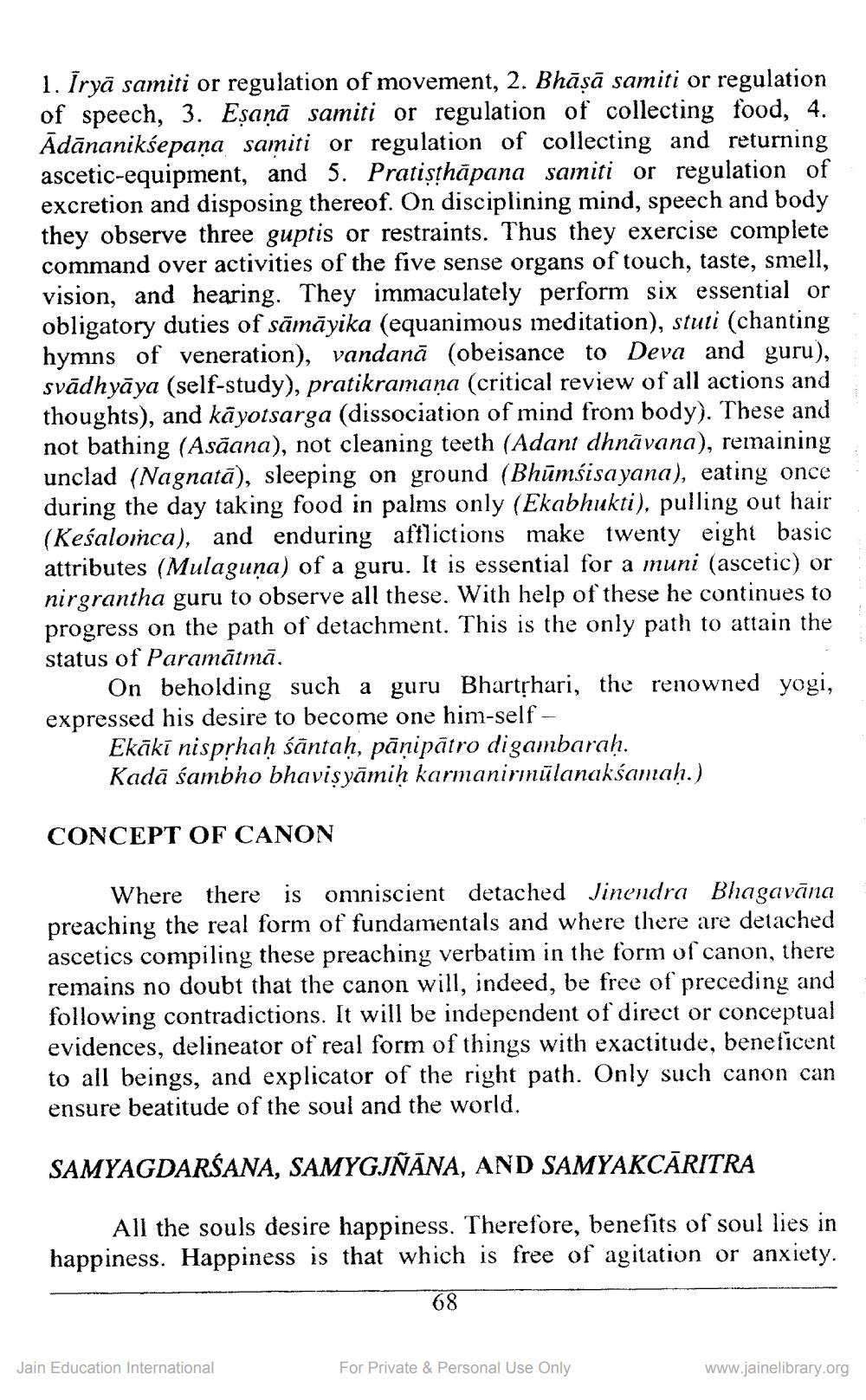________________
1. Iryā samiti or regulation of movement, 2. Bhāṣā samiti or regulation of speech, 3. Esaņā samiti or regulation of collecting food, 4. Adānaniksepaņa samiti or regulation of collecting and returning ascetic-equipment, and 5. Pratisthăpana samiti or regulation of excretion and disposing thereof. On disciplining mind, speech and body they observe three guptis or restraints. Thus they exercise complete command over activities of the five sense organs of touch, taste, smell, vision, and hearing. They immaculately perform six essential or obligatory duties of sāmāyika (equanimous meditation), stuti (chanting hymns of veneration), vandanā (obeisance to Deva and guru), svādhyāya (self-study), pratikramaņa (critical review of all actions and thoughts), and kāyotsarga (dissociation of mind from body). These and not bathing (Asãana), not cleaning teeth (Adant dhnāvana), remaining unclad (Nagnatā), sleeping on ground (Bhūmśisayana), eating once during the day taking food in palms only (Ekabhukti), pulling out hair (Keśaloinca), and enduring afflictions make twenty eight basic attributes (Mulaguna) of a guru. It is essential for a muni (ascetic) or nirgrantha guru to observe all these. With help of these he continues to progress on the path of detachment. This is the only path to attain the status of Paramātmā.
On beholding such a guru Bhartshari, the renowned yogi, expressed his desire to become one him-self -
Ekāki nisprhaḥ śāntaḥ, pāņipātro digambaraḥ. Kadā sambho bhavisyāmiḥ karmanirmūlanakśamah.)
CONCEPT OF CANON
Where there is omniscient detached Jinendra Bhagavāna preaching the real form of fundamentals and where there are detached ascetics compiling these preaching verbatim in the form of canon, there remains no doubt that the canon will, indeed, be free of preceding and following contradictions. It will be independent of direct or conceptual evidences, delineator of real form of things with exactitude, beneficent to all beings, and explicator of the right path. Only such canon can ensure beatitude of the soul and the world.
SAMYAGDARSANA, SAMYGJÑANA, AND SAMYAKCĀRITRA
All the souls desire happiness. Therefore, benefits of soul lies in happiness. Happiness is that which is free of agitation or anxiety.
68
Jain Education International
For Private & Personal Use Only
www.jainelibrary.org




